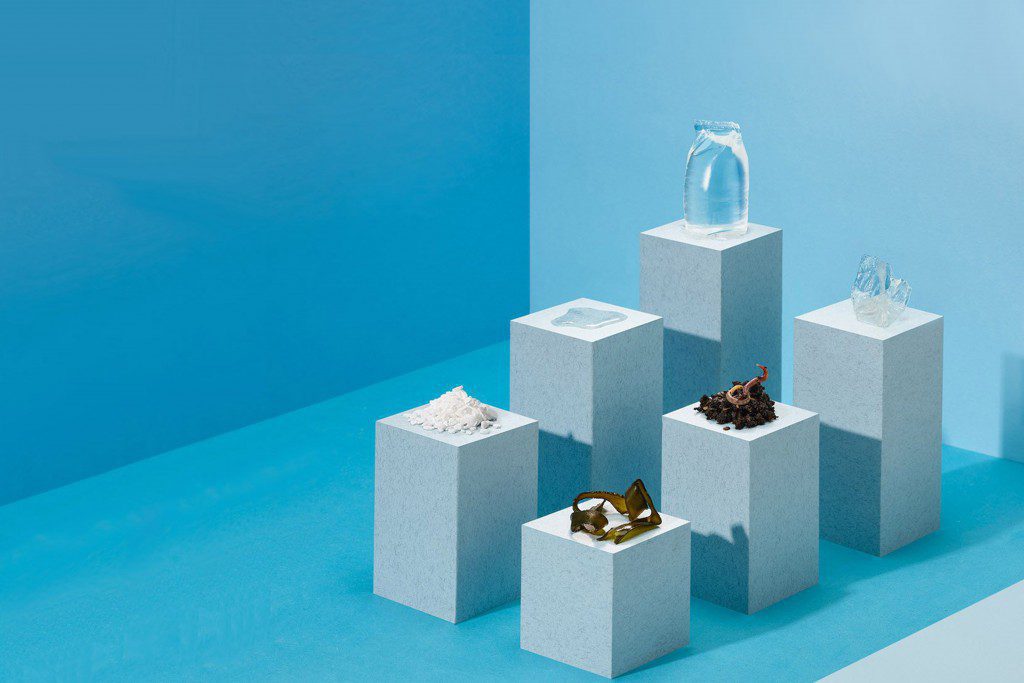Five London businesses who are helping us to become more sustainable
From apps that help you share excess food with those who need it to biodegradable water sachets made from seaweed, here’s a glimpse into a few of the London-based start-ups driving forward our city’s sustainability initiatives.
Notpla
Plastic takes a minimum of 450 years to break down once it reaches the sea. The 8 million tonnes of plastic that end up in oceans every year will never fully dissolve, and we’re on course to have more plastic in our seas than fish by 2050. At our current stage of plastic production, simply recycling does little more than sticking a plaster over a gaping wound. Unfortunately, this is where most major companies focus their environmental efforts. We need retailers, instead, to pioneer innovative ways to reduce the use of plastics across their supply chains.
Skipping Rocks Lab, a London-based sustainable start up, co-founded in 2013 by Rodrigo Garcia Gonzalez and Pierre Paslier while studying at Imperial College and the Royal College of Art, creates advanced packaging solutions that disappear naturally. Notpla – an edible membrane derived from seaweed carries water as well as any plastic alternative and is both edible and biodegradable within 6 weeks. This innovative material will hopefully be adapted to contain all kinds of drinks or condiments, and possibly toiletries in the future. It appeared at several water stations at last month’s London Marathon as part of the city’s attempt to reduce plastic consumption – runners used 215,000 fewer plastic bottles than the previous year’s event.

VILDNIS
The textile industry has a high environmental cost. 1.2 billion tonnes of greenhouse gases are emitted annually in global textile production, which equates to a larger footprint than international flights and maritime shipping combined. It doesn’t end there – 73 per cent of the 52 million tonnes of fibres used in clothing and textiles every year are either burnt or sent to landfill.
Sustainable fashion brands like VILDNIS are working to change this. The brand works to a triple bottom line – they champion and pioneer sustainable material and environmentally-friendly production methods, as well as workers’ rights, auditing the factories they use once a year. They are committed to demanding a fairer, more responsible supply chain and use only environmentally-friendly packaging, avoid air transportation and work with carbon neutral couriers.
“73 per cent of the 52 million tonnes of fibres used in clothing and textiles every year are either burnt or sent to landfill.”
Mooncup
Every woman will dispose of roughly 11,000 tampons or sanitary pads in her menstruating lifetime, the majority of which are single-use and end up in landfill. Plastic tampon applicators may not biodegrade for hundreds of years, and are one of the most common forms of waste on beaches. Brighton-based company Mooncup offers women a more environmentally friendly alternative with their reusable menstrual cups, a principle which is further seen in their production, packaging and marketing. The surgical grade silicone cups also have the added bonus of eliminating the risk of toxic shock syndrome.
Their manufacturing is transparent and as sustainable as possible, with all cups produced in the UK and vegan-certified. Mooncup leaflets and usage guides are made with 100% recycled paper, pulp or fibres and printed with vegetable inks to further minimise their environmental impact. They also proudly support many not-for-profit programmes in the UK and worldwide, and take part in the Marine Conservation Society beach cleans.
“Mooncup offers women a more environmentally friendly alternative with their reusable menstrual cups, a principle which is further seen in their production, packaging and marketing.”
Olio
Every second, 66 tonnes of food gets thrown away. Given that it takes a landmass larger than China to grow the food we waste globally each year, and 25% of all freshwater consumption goes to producing uneaten food, this issue has devastating environmental consequences. It’s not just the resources wasted in creating uneaten food, but also the methane that’s produced when food decomposes in landfill, which makes food waste a serious environmental issue. Methane is a mind-blowing 23 times more damaging than carbon dioxide to the earth’s atmosphere.
Food sharing app Olio was founded in February 2015 by Tessa Clarke and Saasha Celestial-One to combat this ever-growing issue. Users donate surplus food to other users who want or need it. The app not only curbs the £12.5 billion worth of food waste that ends up in landfill every year, but also provides support to individuals in need.
CoGo
A recent report by JWT revealed that 92% of consumers across the UK, US, Australia and China are striving to live more sustainably, but anyone who’s tried to avoid palm oil or trace supply chain waste will tell you that ethical shopping is a time-consuming affair.
London based CoGo, a directory app listing restaurants, shops and service providers that ascribe to ethical and sustainable business practices, hopes to change this. CoGo empowers consumers, allowing them to filter local business under various ‘badges’, such as ‘waste reducing’, ‘carbon conscious’, ‘vegan’ and ‘fairly traded’. Their ultimate aim to accelerate a positive feedback loop between conscientious shoppers and local businesses, and they’re well on their way to achieving this through their intuitive design and functional approach to transparency.
Then of course there is Reconome learn more here